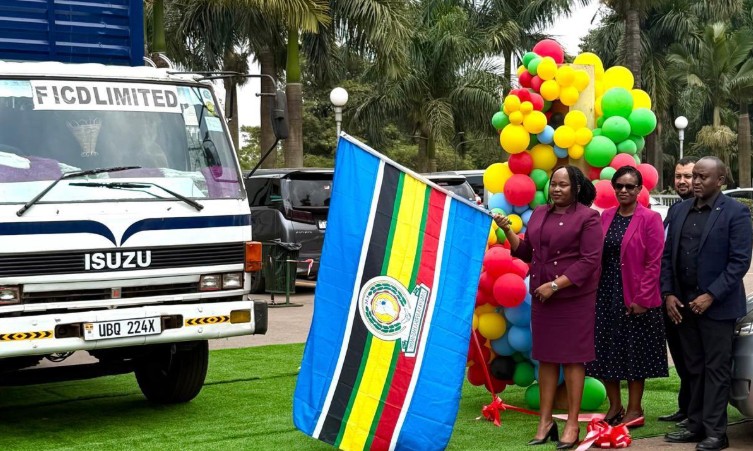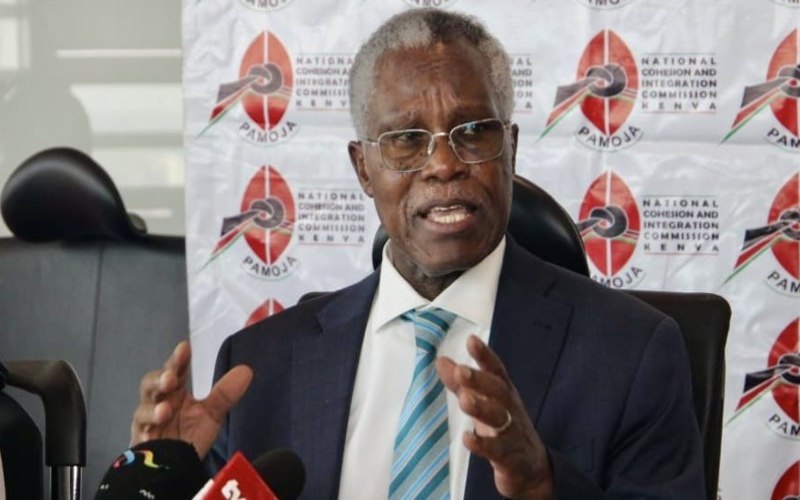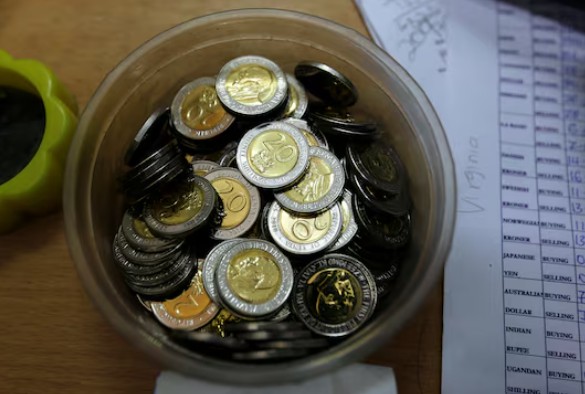East African Community launches unified customs bond to ease regional trade amid ongoing tensions

The new instrument, known as the EACBond, replaces the need for multiple national customs bonds when transporting goods across member states, streamlining the process and reducing costs.
East African Community (EAC) partner states on Monday launched a unified regional customs bond aimed at facilitating smoother trade across borders, despite persistent trade tensions within the bloc.
The launch, held in Kampala, Uganda, comes just three days after EAC leaders expressed concern over unilateral measures taken by some member states—actions they say undermine the rights and freedoms guaranteed under the EAC Common Market Protocol. The leadership warned that such moves contradict the spirit of regional integration.
More To Read
- Wetang'ula warns EAC arrests over travel documents threaten regional integration
- EAC and AGRA rally young entrepreneurs to transform regional food systems
- EAC's Nairobi summit pushed to January amid regional tensions
- Kenya criticises ‘over-judicialisation’ after East African Court of Justice blocks EU trade deal
- East African Court postpones swearing-in of nine Somali legislators to EALA
- Museveni clarifies Indian Ocean comments after Kenya downplayed war talk
The new instrument, known as the EACBond, replaces the need for multiple national customs bonds when transporting goods across member states, streamlining the process and reducing costs.
“By allowing traders to secure their entire cargo journey with a single bond, the EACBond will significantly reduce trade costs, ease border delays and free up business capital," stated an official communication from the bloc at the launch.
To operationalise the bond, the EAC established an online platform that enables customs bonding across all seven partner states.
“It is supported by the same technology as the Regional Electronic Cargo Tracking System (RECTS), which gives revenue authorities, insurers, clearing and freight agents, and transporters access to real-time cargo tracking, monitoring, and reporting,” the bloc noted.
A customs bond acts as a financial guarantee to customs authorities, ensuring that duties, taxes, and other obligations linked to the import or export of goods are paid. These bonds can be used by importers, exporters, customs brokers, and freight forwarders to facilitate cross-border trade and reduce financial risk. In the event of non-compliance, the bond can cover unpaid fees or penalties.
“It also emphasises the liability and accountability of principals, while allowing insurers and guarantors to pursue claims for losses. The platform integrates with customs management systems and offers features like application tracking, communication tools, and reporting capabilities,” the EAC added.
Bond retirement
The system also supports bond retirement, ensures compliance with customs protocols, and offers insurance coverage for goods in transit.
The idea of a regional bond was first proposed in 2023 during a meeting between the EAC Secretariat and stakeholders to assess its potential benefits and compare it with the COMESA Regional Customs Transit Guarantee (RCTG).
Kagriel Kino, a representative of the EAC Secretariat, clarified that the new bond is not intended to replace the COMESA RCTG bond but to offer an alternative tailored for EAC member states.
“We became aware of the shortcomings of the COMESA RCTG bond and have developed a cheaper and more efficient solution for the business community in order to guarantee that bond issuers in each of the EAC partner states have access to a larger pool of liquidity in a single market,” he said.
 EAC Secretary-General Veronica Nduva flags off a truck after launching the regional customs bond in Kampala, Uganda on August 4, 2025. (Photo: East African Community)
EAC Secretary-General Veronica Nduva flags off a truck after launching the regional customs bond in Kampala, Uganda on August 4, 2025. (Photo: East African Community)
The concept of the EACBond dates back to 2014 and is anchored in the Single Customs Territory framework, which seeks to enhance the seamless movement of goods across the region.
The initiative is expected to help reduce trade-related friction within the bloc.
In a statement issued on Thursday, EAC Secretary-General Veronica Nduva reminded member states of their binding commitments under the EAC Common Market Protocol, which aims to eliminate trade and investment barriers and promote the free movement of people and businesses.
She cautioned member states against reversing liberalisation commitments already made under Annexe V of the EAC Common Market Schedule.
“The Protocol explicitly emphasises that Partner States shall not reverse or restrict sectors and trades they have previously liberalised,” Nduva said.
She also condemned recent unilateral actions by some countries, saying they run counter to the principles of the protocol.
“It is important to remind all Partner States that unilateral backtracking on these commitments is inconsistent with the obligations under the Protocol,” she said, noting that this position was also reaffirmed by the Attorneys General during the Sectoral Council on Legal and Judicial Matters in November 2024.
Top Stories Today














































